nlopchantamang.com
Drab Drugstore Essentials Get a Makeover, Minting Millions
Shân Osborn

Source: Jungle Scout
The Signal: Dollar Shave Club did it with razors. Casper went big with mattresses. And The Sill dug in with houseplants.
Now another multibillion-dollar industry is on the verge of being disrupted by D2C startups: first aid.
Welly, provider of premium first aid “for when fun wins,” launched in 2019 -- and generated $10m in its first year (check out our interview with founder Eric Ryan from HustleCon).
Bold designs and playful product descriptions are setting the brand apart. “Hero tape” and “bravery balm” are a far cry from Band-Aid’s “Tru-Stay Plastic.”

The Opportunities: Pioneer Welly nabbed a seed round of $8m, and is quickly bleeding market share from behemoths like Johnson & Johnson. But the D2C first-aid space is still nascent. There is plenty of room for more players.
Amazon searches for first-aid products have soared over the last month.
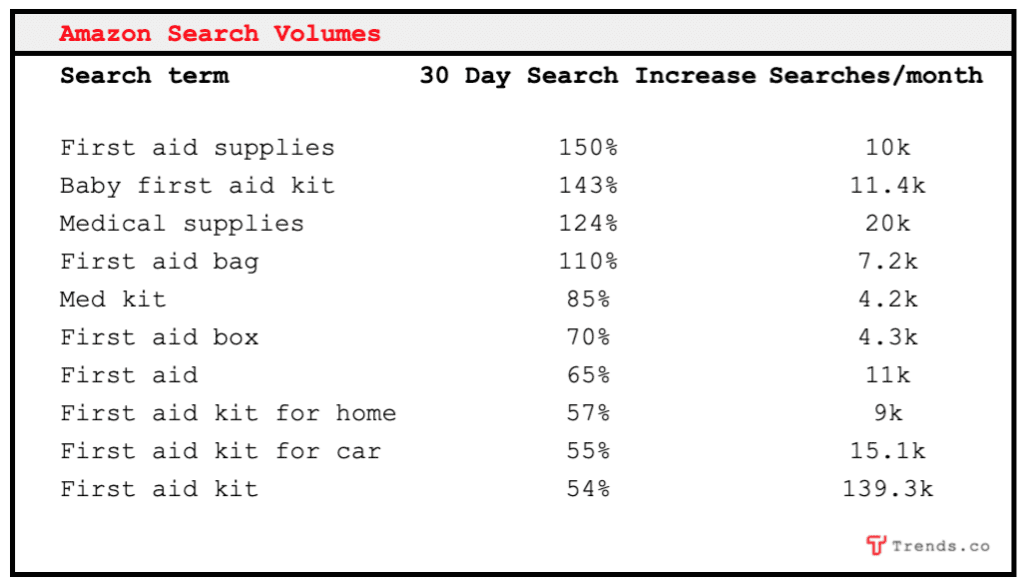
Entrepreneurs could niche down, focusing on specific needs, sports and/or age groups (e.g., “baby first aid kit” has 11.4k searches/month on Amazon).
You could leverage pop culture and provide themed kits. Welly has already partnered with local artists for limited-edition collection tins.
Comprehensive, adult-focused kits present attractive opportunities (e.g., specifically for skiing or hiking trips). Go2Kits is the only brand stocking cold weather first-aid kits on Amazon, and this one (made up mostly of plasters and toe warmers) generates $1m+/month!
A link to your kit could be offered on checkout at vacation accomodation/flight-booking sites.
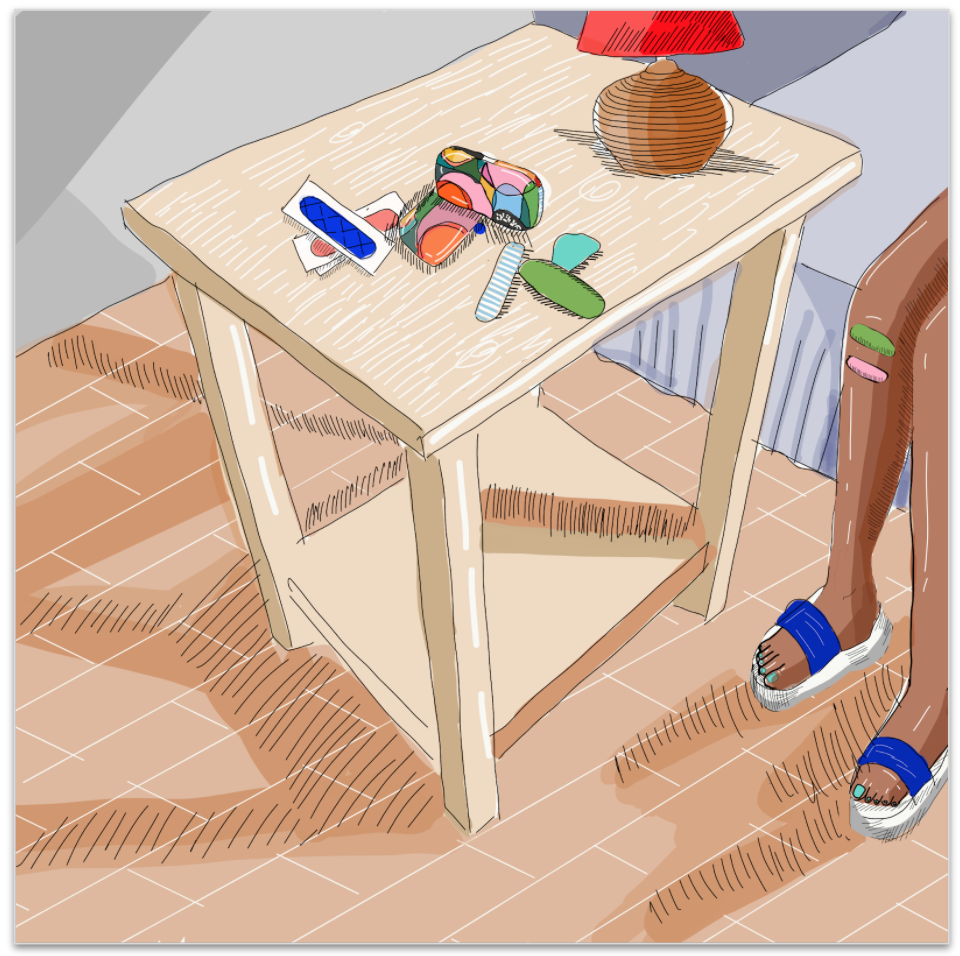
And don’t forget about Fido. Jungle Scout shows Amazon searches for “dog first aid kit” in the US have jumped by 44% over the last month (~4k searches in January).
With ~63.4m American households owning pooches (and 37% planning travel around them), it’s only a matter of time before D2C animal first aid goes mainstream.
Cat parents (~42.7m Americans) and the multibillion-dollar small pet industry will be next in line for curated products and kits.
Entrepreneurs could also focus on product innovation in the first-aid space. A good example is BLDG’s Active Skin Repair gel, which has great Amazon reviews but never quite gained the traction of Welly as a solo product offering.
Incorporating these new products into attractive kits could provide significant opportunities.
Beyond First Aid: The time is ripe to modernize other boring but essential drugstore items and go D2C.
Care/of is testing out these waters in the personalized vitamin space. Similar Web shows their site had 1m+ visits in January 2021 -- almost double the ~600k for December 2020. It’s a high growth market.
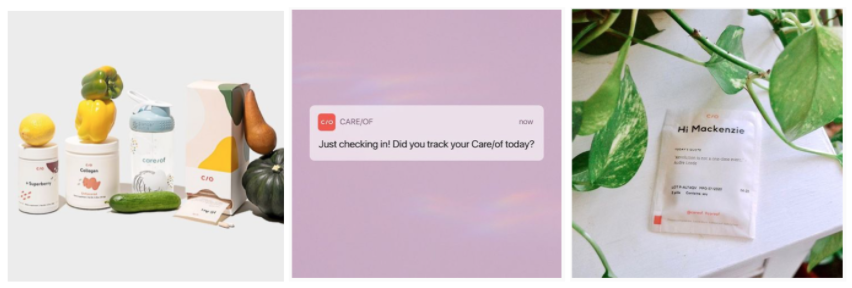
Attractive vitamin niches include menopause (Kindra recently launched) and new mothers (Momful even has a “mom brain” supplement).
And don’t forget Trendster Alice Li, co-founder of childrens’ vitamin company First Day, which has seen 4x growth in the past year. (We did an AMA with her in the company’s early days, back in 2019.)
You could also consider personalized D2C supplements for other complex life transitions, like preteen years or midlife crises.
Welly’s approach of celebrating bumps and scrapes, not hiding them, is likely to work well with millennials, Gen Z, and feminine hygiene (an industry forecast to reach $52B by 2023).
Personal care and period products that celebrate women could be shipped in monthly care packages. Brands like Cora and Lola are already entering this D2C space.
You could go wild here and set yourself apart by including cramp-relief kits and PMS-busting packs (overdeliver and add emergency chocolate supplies).
Seasonal allergy packs could also be redesigned for D2C.
Americans spent $1.5B+ on hay fever medication in 2016, and ~6m US children experience seasonal hay fever. Funky themed kits would go a long way in persuading them to take that nasal “superhero spray.”
D2C seasonal flu packs, gut health kits, and even stress-buster/sleep hygiene packs (L-theanine, CBG, melatonin gummies, etc.) should all be on your radar.
Value-Adds: Startups could incorporate other trends (presented in this article) into their D2C offerings.
One example is the FIY (“finish it yourself”) trend, which preserves the consumer satisfaction of doing things, but with limited risk of failure (“DIY but with a safety net”).
To incorporate this, first-aid brands could offer an array of sticker badges to add to children’s Band-Aids -- including “explorer awards,” “biking badges,” or collectible characters kids can add themselves.
Another example is the psychological brand movement: feel-good marketing strategies that de-stigmatize mental health (e.g., Own Your Stigma clothing). Female hygiene and supplement products could tap into this.
The trend will tie in nicely with the rise of the next social media stars: therapists and mental health influencers (note: social media has been key for driving traffic to Welly’s site).
Leveraging FSA: Interest in flexible spending account (FSA) stores has been steadily rising.
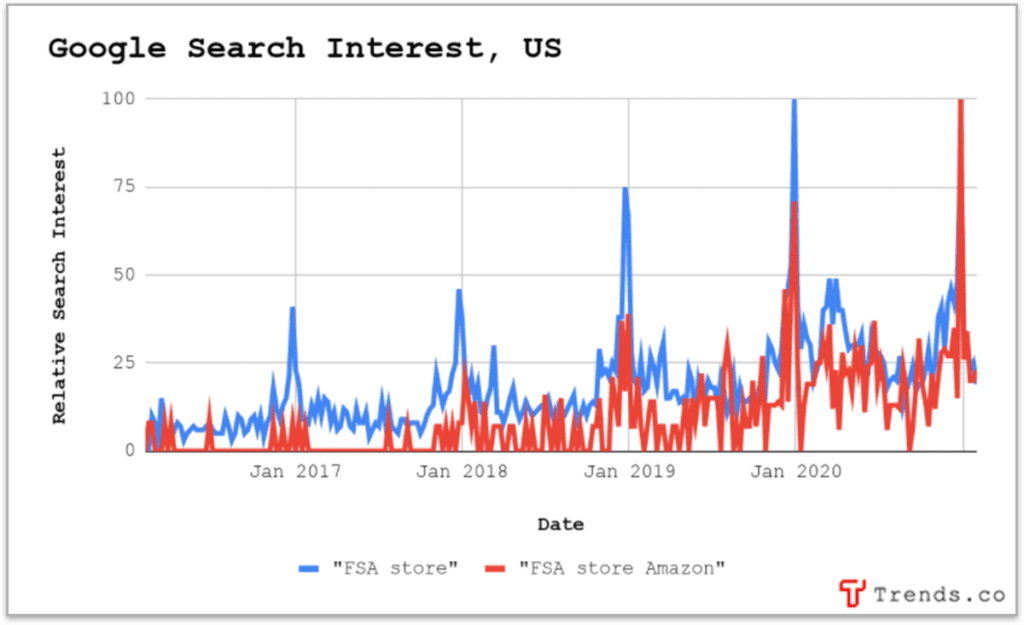
Entrepreneurs could focus on FSA-approved D2C options.
Opportunities here include providing the most popular FSA items D2C, in a better/trendier way (e.g., light therapy, which we covered last year).
FSAstore.com also leaves a lot to be desired. A quick browse of their reviews reveals expired products, low stock, and poor customer service.
While giants like Amazon and CVS both have FSA-approved categories, you could get a foot in the door by developing a niche, consumer-centric platform that stocks the best modern FSA products.
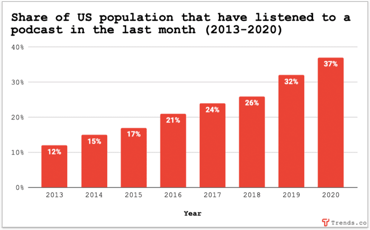
Leave a Comment